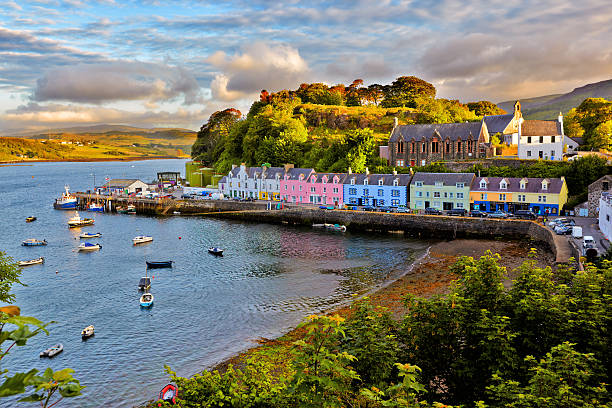Home » Scotland Travel News » Edinburgh, Glasgow, And Aberdeen New Tourist Tax Changing The Landscape Of Scotland’s Tourism Economy
Published on
October 2, 2025
Glasgow, Edinburgh, and Aberdeen are set to introduce new tourist taxes as part of a growing effort to manage the economic impact of rising tourism. These cities aim to generate additional revenue that will be reinvested in improving local infrastructure, services, and events, benefiting both residents and visitors. The move comes as a response to increased visitor numbers and the need to address the pressures placed on local resources. While the taxes are expected to impact travel costs, they are seen as a sustainable solution to ensure that the benefits of tourism are shared more equitably across Scotland’s economy.
Starting in the summer of 2026, Edinburgh will be the first city in Scotland to implement a “tourist tax” on visitors. This new levy, set at 5%, will apply to anyone booking accommodation in the capital after July 24, 2026. This means that guests who reserve a hotel room, bed and breakfast, or holiday rental from this date will see an additional 5% charge on top of their accommodation fees.
The move is part of a broader trend, with other popular destinations in Scotland considering the introduction of similar charges. As the city sets this precedent, it raises the question: which regions in Scotland are following Edinburgh’s lead, and which have decided against it?
How the Edinburgh Tourist Tax Will Work
For those who have already made bookings for stays before the tax kicks in, there will be no extra charge. However, starting October 1, 2025, visitors planning an overnight stay in Edinburgh will need to pay the additional 5% levy. Importantly, the tax will only apply to the first five nights of a stay.
The revenue generated by the tourist tax will be used to improve services and facilities that cater to both tourists and business visitors in the city. This includes enhancements to local infrastructure, which the authorities hope will benefit the tourism industry directly. Hotel owners, including those at major establishments like the Holyrood Marriott, are optimistic that the funds raised will bring visible improvements to the city, benefiting both residents and visitors alike.
Which Other Scottish Cities Are Introducing a Tourist Tax?
Following Edinburgh’s lead, other major cities in Scotland are planning to introduce their own versions of the tourist tax. Glasgow, for instance, has announced that it will apply a 5% charge on overnight stays starting in January 2027. This will result in an average additional cost of £4.83 per night. The local government in Glasgow expects to raise approximately £16 million annually from this levy, which will be allocated towards infrastructure projects and event funding aimed at enhancing the city’s appeal to tourists.
Aberdeen, too, is preparing to implement a tourist tax, though at a slightly higher rate. Starting in April 2027, visitors to Aberdeen will face a 7% levy on overnight stays. With the average cost of a hotel room being around £70, this would translate to an additional £4.90 per night. The city’s council anticipates generating around £6.8 million annually, which will be spent on improving infrastructure to accommodate both local residents and the growing number of tourists.
Regions Opposing the Tourist Tax
While some regions in Scotland are embracing the tourist tax, others have either paused or completely rejected the idea. The island councils in Orkney, Shetland, and Comhairle nan Eilean Siar have opted not to introduce a similar levy. These councils argue that a tax like Edinburgh’s would not be suitable for rural or island areas, where tourism is often less concentrated, and the administration of such a charge could add to the burden on local businesses.
Moreover, there is a push in some areas for a “point of entry” tax, which would be levied at ports and airports. This would target cruise ship passengers, who made up a significant portion of Scotland’s 1.2 million visitors last year. Cruise passengers, as well as those staying in campervans, are currently exempt from the existing tourist levy legislation, which has led to calls for a more tailored approach. In response to these concerns, the Scottish government conducted a consultation earlier this year regarding the potential introduction of a cruise ship levy, with results expected soon.
Other councils, like Argyll and Bute, have delayed their plans for a tourist tax after public consultations showed insufficient support for the initiative. Similarly, South Ayrshire, home to well-known tourist sites like Trump Turnberry, found that just 15% of respondents to its consultation supported the idea of a visitor levy.
Other regions, such as Dumfries and Galloway, are still evaluating the proposal. Some local businesses in these areas have raised concerns that implementing a tourist tax could make the region unnecessarily expensive and deter potential visitors. The local chambers of commerce in the Highlands have echoed these concerns, with the consultation process in that area now closed.
Who Will Have to Pay the Tax?
The tourist tax will apply to anyone staying overnight in Edinburgh, including residents from both Scotland and the rest of the UK. Visitors staying in hotels, hostels, bed and breakfasts, guest houses, self-catering accommodations, campsites, and caravan parks will all be required to pay the levy.
Additionally, tourists staying on vehicles such as campervans or boats that remain in one location will also need to pay the tax. However, certain groups will be exempt from the charge. These include individuals who do not have a permanent or safe home, such as those experiencing homelessness, refugees, and asylum seekers.
While Edinburgh leads the way with its tourist tax, other parts of Scotland are carefully considering whether to follow suit. Some areas, particularly island and rural regions, have opted out due to concerns about feasibility and local impact. As more cities like Glasgow and Aberdeen prepare to introduce similar levies, it remains to be seen how this will shape the Scottish tourism landscape in the years to come.
